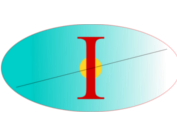Citation:
| jacobi2004well.pdf | 408 KB |
Abstract:
The auxiliary-field Monte Carlo (AFMC) is a method for computing ground-state and excited-state energies and other properties of electrons in molecules. For a given basis set, AFMC is an approximation to full-configuration interaction and the accuracy is determined predominantly by an inverse temperature "\beta" parameter. A considerable amount of the dynamical correlation energy is recovered even at small values of \beta. Yet, nondynamical correlation energy is inefficiently treated by AFMC. This is because the statistical error grows with \beta, warranting increasing amount of Monte Carlo sampling. A recently introduced multideterminant variant of AFMC is studied, and the method can be tuned by balancing the sizes of the determinantal space and the \beta parameter with respect to a predefined target accuracy. The well tempered AFMC is considerably more efficient than a naive AFMC. We demonstrate the principles on dissociating hydrogen molecule and torsion of ethylene where we calculate the (unoptimized) torsional barrier and the vertical singlet-triplet
Notes:
RBaer-Publication



